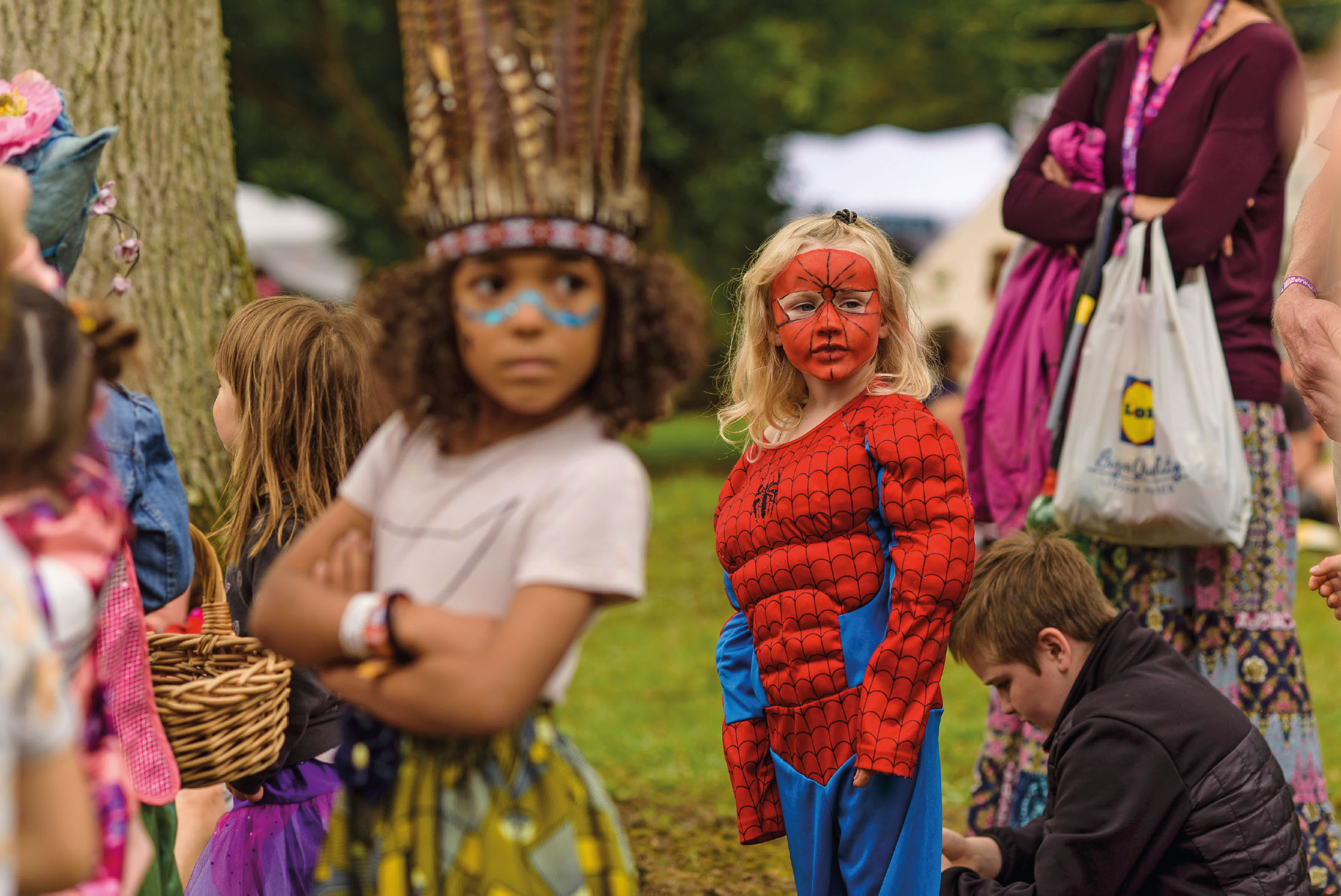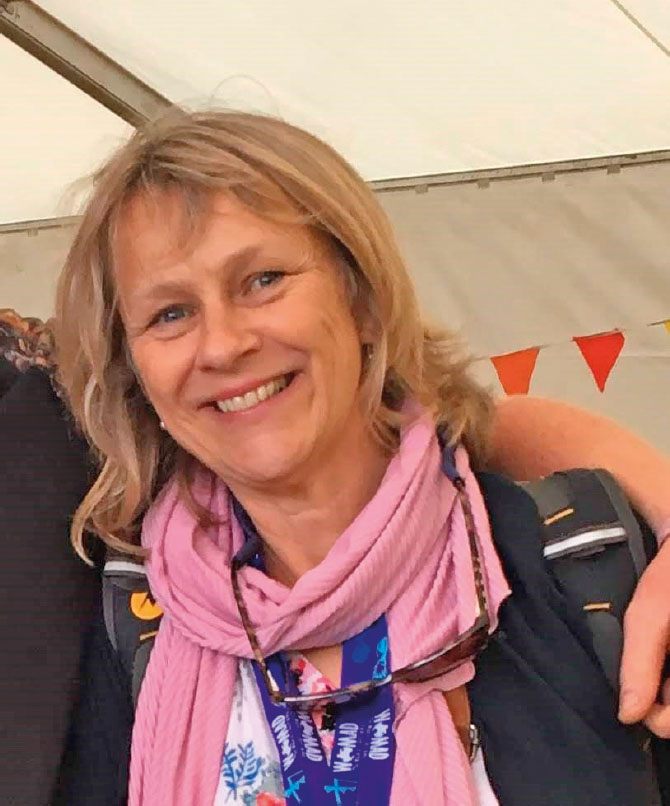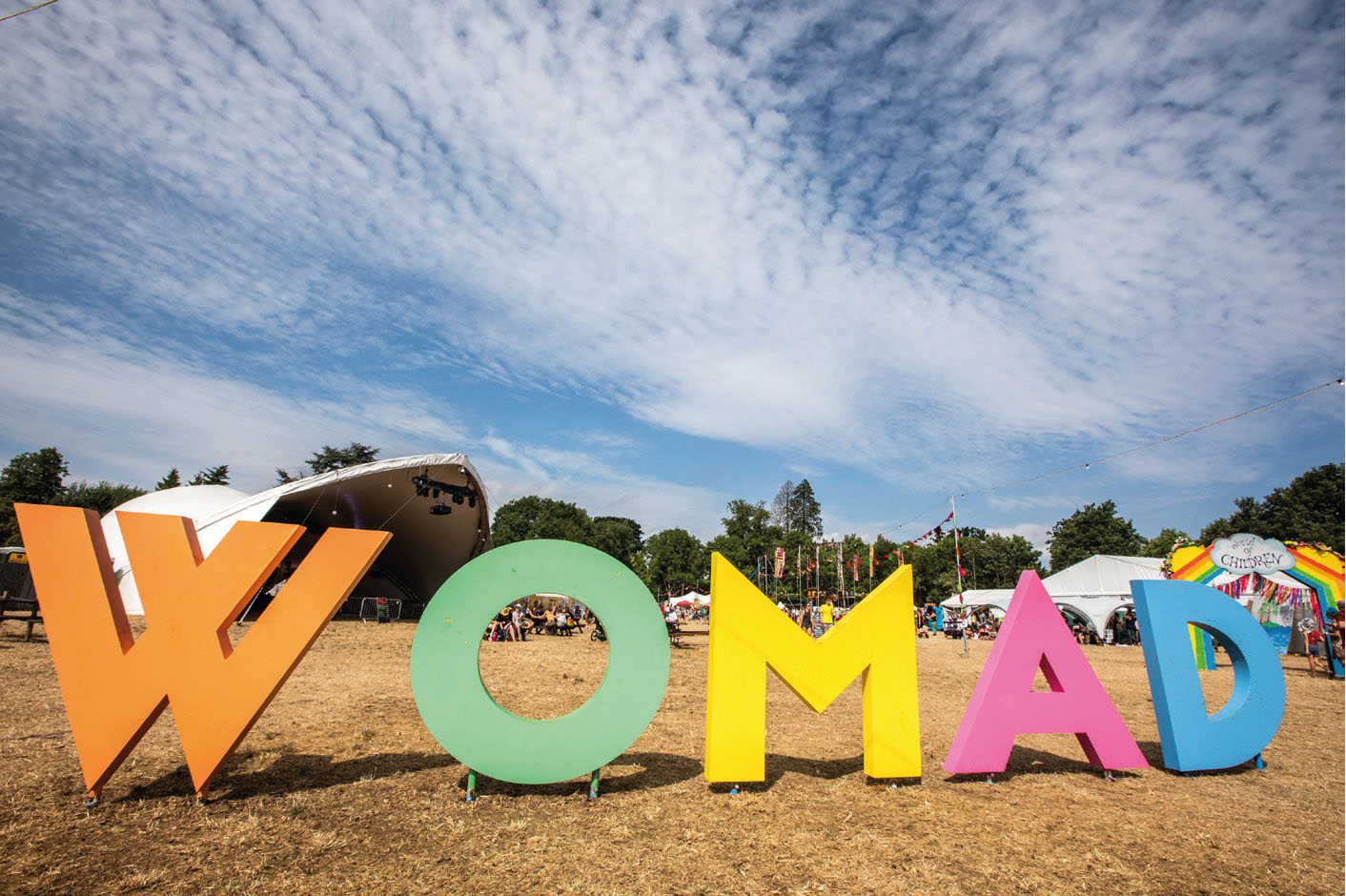
First held in 1982 the World of Music, Arts and Dance (WOMAD) is an international festival that celebrates the rich cultural arts offerings throughout the world. The UK version is held in Wiltshire, but the festival takes place across the globe, including in Adelaide, Abu Dhabi, and Sicily and beyond. Each festival features scores of live music concerts, workshops and activities for visitors to participate in and engage with – and since the beginning it has held children at centre stage.
For the past 30 years, Mandy Adams has been creating and organising the adult and children's workshop programmes for WOMAD. She originally trained as a primary school teacher and taught in Bristol for a number of years before joining WOMAD in 1989. She tells me that even before the first official festival, there was a week-long education programme in Bristol schools with an accompanying education pack. Now, the festival features over 200 workshops for people aged 13 and under – and importantly, all of these workshops, as well as entry to the festival, are completely free for those of that age.
‘At each WOMAD Festival we lead music workshops for all the family in the All Singing All Dancing Tent and the World Rhythms Tent,’ Adams says. ‘Some of these are led by artists performing at the festival who give a greater insight into the culture and its traditions and teach rhythms and songs related to their music. We also bring in workshop artists to lead sessions in percussion and singing that are open to families of all ages and abilities.’
In the children's area itself, there is also a huge programme of music workshops, including djembe percussion, samba dance and percussion, ukulele, giant xylophone, boomwhackers, musical sculptures, instrument-making sessions and more. Adams says: ‘We often find that parents can't pull their children away as they immerse themselves so fully in the sessions,’ adding that, in the sessions for families, parents and children can learn alongside one another. ‘Exploring music in an informal setting is great fun for everyone and can often reignite interest in an instrument, interest which may have waned.’
And what kinds of tutors are available to impart their expertise? ‘Over the past few years we have had a great area called The Music Caravan, led by Lisa Nasta from Somerset. She has a caravan and awning filled with instruments she has found and restored – violins, guitars, ukuleles, violas, drums and more. All day – every day – she and her team of teachers are on-hand to enable children to explore these instruments, either for the first time or to help improve their skills. Most sessions end with a jam, which is great fun.’
With music and arts exploration at the heart of the children's workshops, they allow potentially previously intimidating instruments to be introduced into the lives of the participants. This provides children with an inclusive, creative and tactile space for inquisition – just as music should be. The centrality of children to the international and outward-looking ethos of WOMAD is, as Adams says, as important now as it was in 1982.
 Children have always been welcomed and celebrated at the festival (Image: Mike Massaro)
Children have always been welcomed and celebrated at the festival (Image: Mike Massaro)
Utopia
It all seems incredibly idealistic: a world where culture and arts collide with freedom of exploration and experimentation. But are there any challenges that are unique to running these kinds of activities for children? If so, what are they and how are they dealt with?
‘We do encounter quite a few issues,’ Adams says. ‘But we always try to employ workshop leaders who can work with mixed-ability groups who can encourage beginners and help to develop more advanced musicians. We teach children to show respect to the instruments and to others, so that everyone has a turn to listen and a time to play.’ More specifically, she says that the sound sculptures can be difficult: ‘We have learned from experience that these have to be properly tuned and not too noisy, otherwise they can make too much of a racket.’

Mandy Adams, education and workshop manager at WOMAD (Image: Victor Frankowski)
(Image: Victor Frankowski)
I was keen to discover where, on a more granular level, this desire from the organisers to provide activities and workshops for young people came from, and how it has evolved since then. Of course, since the first WOMAD was held – at the time in Shepton Mallet – it included a children's day for surrounding schools on the Friday – so right from the very beginning, children's access to arts has been at the centre of the festival. It was, Adams tells me, ‘an amazing event, with a great line-up which included the Drummers of Burundi’.
‘All these years later at WOMAD Charlton Park, we open the event with a performance by local primary and secondary schools from the Malmesbury area,’ Adams says. ‘This is the culmination of a week-long project which sees pupils collaborate with musicians from musical traditions from different parts of the world.’ In 2018 they collaborated with the Kafou Music Project from Senegal; in 2017 it was with Bristol folk band Sheelanagig for a Celtic music collaboration; and in 2016 it was with Escola de Carnaval from Brazil.
This year, they will be working with the UK-based, Indian-style band Bollywood Brass Band.
It is impossible to speak to someone so clearly enthusiastic about of free access to arts and culture for children, without asking how Adams feels about the UK government's persistent arts funding slashes, and young people's resulting suffering musical education. Her response is as I might have expected: ‘Offering music workshops for free at WOMAD and other festivals is so important. It gives children the opportunity to discover new rhythms and instruments they may not come across in any other area of life. It might be the spark that inspires them to take up an instrument. This also of course applies to the visual arts – watching performances can be inspirational.
‘From my own experience, I know that my career in organising WOMAD workshops for over 20 years has led to my own children – now 16 and 18 – to pursue dance to a very high level, and consider it to be a future career path.’
Get involved
With regards to keeping music education open and accessible to all, I am keen to hear whether there is more that other festival organisers – or even musically-minded people – could be doing to improve access to arts, especially for children and young people. Of course, it's up to the organisers of festivals and musical events to decide how – if at all – they plan to achieve that, but as Adams tells me: ‘Children and arts education are at the heart of WOMAD.’
So much so that the festival has its own educational arm, the WOMAD Foundation. While currently funded by the festival itself, Adams tells me that they are always looking for ways to increase funding. Community groups, schools and artists are encouraged to apply for grants of between £1,000 and £3,000 for music and arts projects, ultimately enabling more opportunities for children to explore the music and arts they experience at the festival, throughout the rest of the year.
WOMAD workshops
If you would like to lead a workshop at WOMAD, please contact Mandy Adams at workshops@womad.org. For more information on funding, please visit womadfoundation.org.




